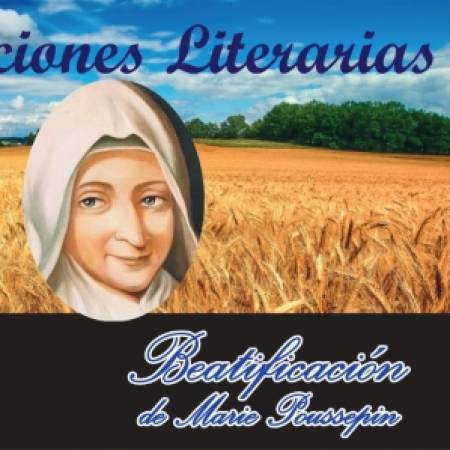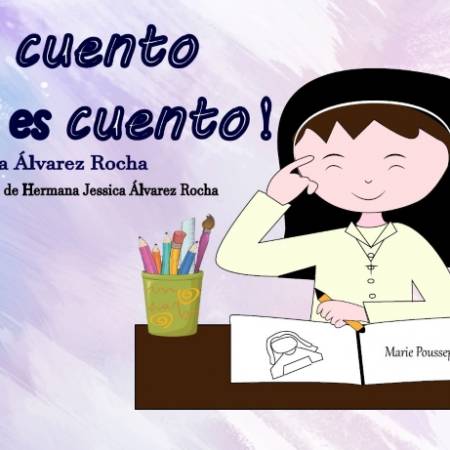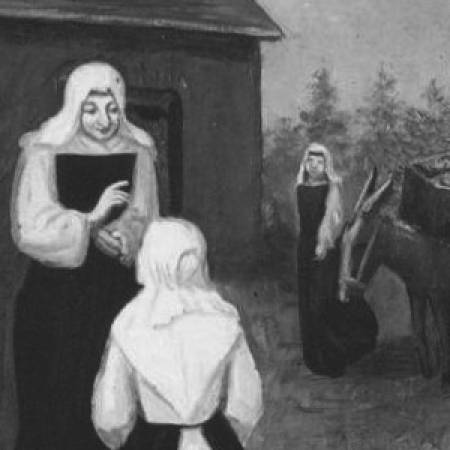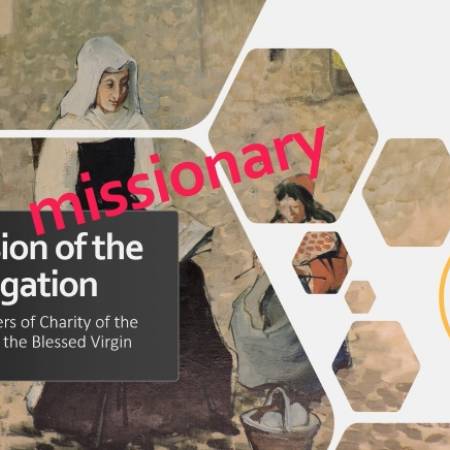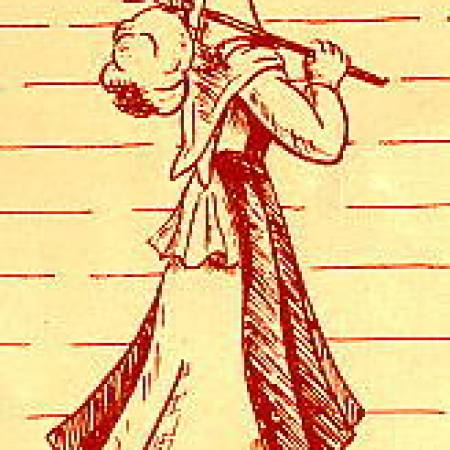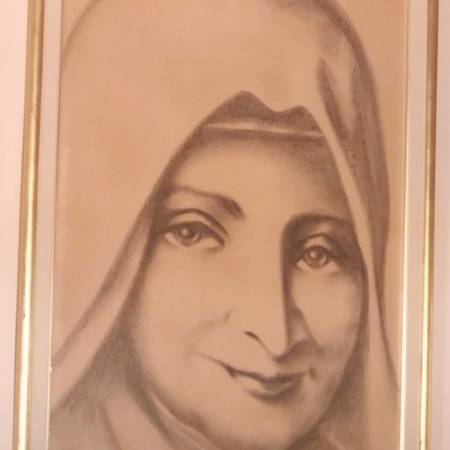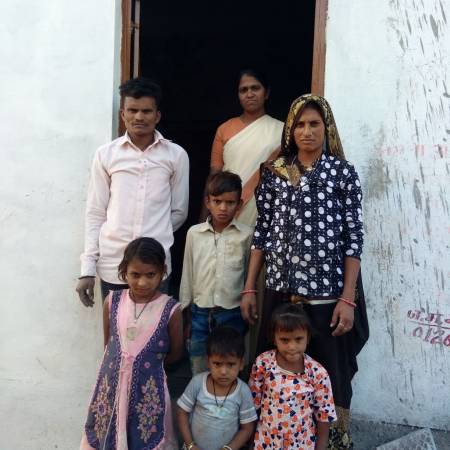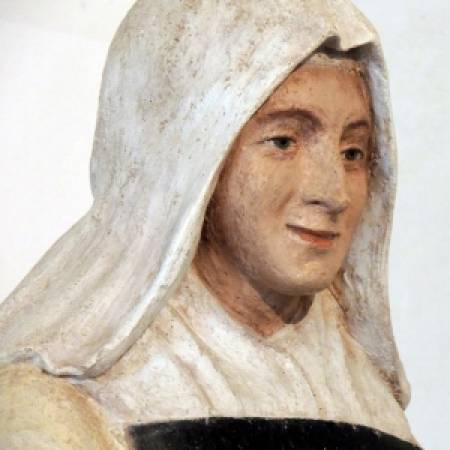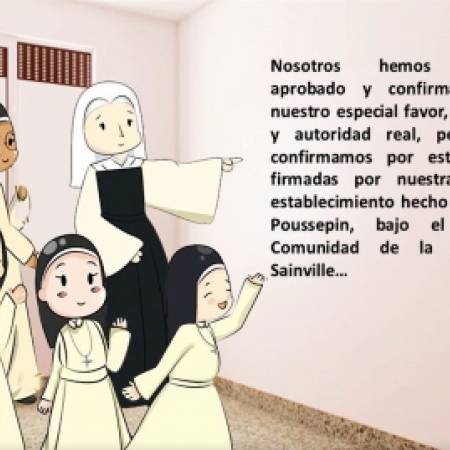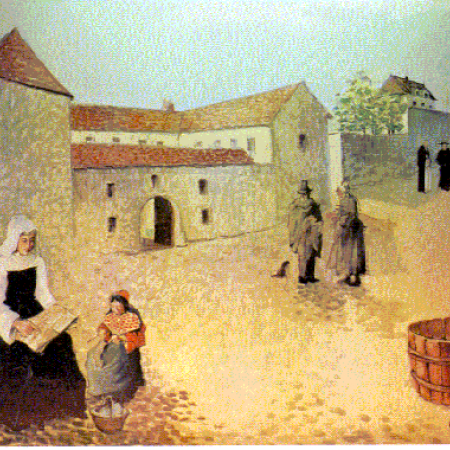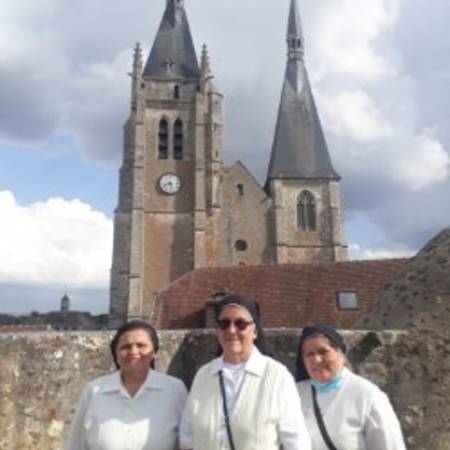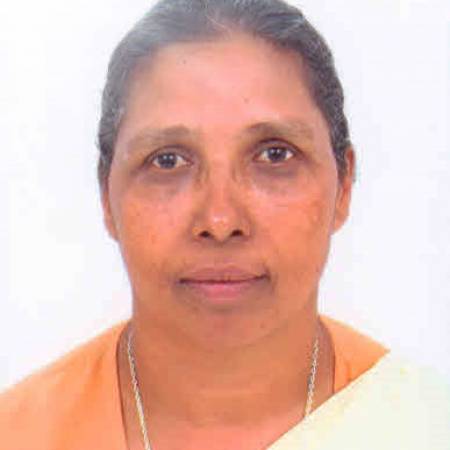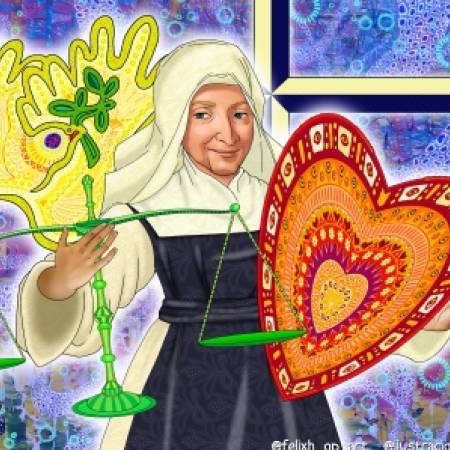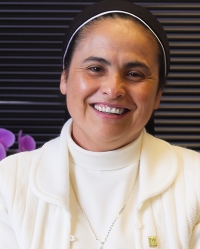DOWNLOAD IN PDF:
GREAT MOTHER EARTH IS OUR COMMON HOME
By SR. MARÍA ELIZABETH CAICEDO CAICEDO* (COLOMBIA).- Looking at the earth as our home implies remembering its existence in the very first moment, that it is an orbit of the sun, a planet that has circled around the sun for more than 4.450 million years; that the earth has a distance of 150 million kilometers from the sun and that life originated after millions of years, may be 4000, to support life in all its diversity since the first living cell named as Aries by scientists.
In this way, the earth named as Gaia (primordial earth/mother goddess) by ancient Greeks is a living superorganism where elements both living and un-living form an interconnected, balanced and integrated whole which is facing a threat today. In this regard, all species, including human beings, born 8 to 10 million years ago are children of the earth and share the great gift of life.
Life that we read in the first chapter of the book of Genesis, whose name is confined to the beginning, the origin, the nature of life itself. “In the beginning God created the heavens and the earth. Now the earth was formless and empty, darkness was over the surface of the deep, and the Spirit of God was hovering over the waters” (Gen. 1: 1-2). Thus, recognizing God as creator means receiving the mysterious force of life which dwells, propels, imposes and attracts everything on earth according to two dynamic principles: the powerful breath of God that makes fruitful and turns chaos into order and the supreme Word that gives life to all that he calls by name in a temporal context where the first is the creative action and BEING becomes possible.
“And God said…” (Gen. 1: 3)
“Thus the heavens and the earth were finished, and all the host of them. And on the seventh day God ended his work which he had made; and he rested on the seventh day from all his work which he had made. And God blessed the seventh day, and sanctified it: because that in it he had rested from all his work which God created and made”… (Gen. 2: 1-4ª). These are the origins of the heavens and of the earth when they were created”.
This biblical hymn emphasizes: on the one side, “the way life becomes, conforms and changes the environment to which it adapts itself, environment likewise feedbacks the life that changes, acts and grows in it” (Capra,1998, p.124). On the other hand, it conveys the awareness of people of Israel that considers that all that exists are the fruit of God´s word/action: cosmos, water, earth, nature, plants, animals and people.
The heavens proclaim the glory of God, and the firmament shows forth the work of his hands. Day unto day takes up the story and night unto night makes known the message. No speech, no word, no voice is heard yet their span extends through all the earth, their words to the utmost bounds of the world. (Psalm 19: 2-5)
In this regard, it is important to put in context the deep vision that ecology has about life, as Capra well says (1988) “it is a spiritual, religious and mystic vision”. Profound ecology is a school founded by the Norwegian Philosopher Arnee Naess in the 60s as a perspective and horizon of reading and understanding the great phenomena that life is. In words of Capra:
“It does see the world not as a collection of isolated objects but as a network of phenomena that are fundamentally interconnected and interdependent. Deep ecology recognizes the intrinsic value of all human beings and views humans as just one particular aspect in the web of life” (P. 29).
In this text it is the light spectrum that helps us approach the earth as a common home, Oikos that weaves and interconnects all that lives and breathes, and therefore is our responsibility according Genesis chapter 2, which identifies human beings as its growers and caregivers.
We aim to overcome the simplistic vision of ecology that from its anthropocentric view turned the human being into the owner and master of all that exists, according to the religious mandate given by God to human beings: people, couple, community in the first chapter of the book Genesis: God blessed them and said to them, “Be fruitful and increase in number; fill the earth and subdue it. Rule over the fish in the sea and the birds in the sky and over every living creature that moves on the ground.” (Gen. 1:28). In this sense, the Religious Conference of Latin America (2004) calls attention in its declaration:
We understood that we had more divine power than any other creature and because of this we shaped a hierarchical and mechanical classification of beings that prevails until today. We formed a hierarchical vision of the world and humanity which supports our injustice and inequality. (P.4)
We missed the second account of creation: Genesis chapter 2, contained in the same book which from an agricultural perspective proposes the care and cultivation of the earth as the task of human beings. “The Lord God took the man and put him in the Garden of Eden to work in it and take care of it” (Gen: 8).
In this context, it is therefore necessary to approach our common home, from the Etymological meaning of the word Ecology: from the Greek oikos=house “study of the home on earth” (Capra, 1998, p.52). At this very moment of human cruelty and destruction of earth invite us to think more in an ecological conversion than an ecological awareness to take action and transform the reality as Pope Francis said in his encyclical letter LAUDATO SI to an ecological spirituality that allows us to be aware of being connected with everything that exists (LS 220).
Conversion which implies recognizing that our senses seem to be closed to the big issues regarding ecology and planet. It is not possible to talk about ecology without ethical options that, in the fields of justice and peace, make us aware of giving priority to the commitment to the care of creation, as an expression of our option for the care and defense of life. It is understood nowadays as:
Symphony: organization of our lively voices which cries out that it is possible to live in austerity, simplicity and be happy with little (LS 222). Crying out for justice, freedom, equality for all of us in the middle of a world that impoverishes and creates huge gaps between the poor and the rich.
Journey: it is done through many paths that converge, cross and move away, attentive to the call of many men and women that ignoring statistics enumerating starvation, disease, unemployment invite us to change its course because of the deterioration of the earth. It is important to realize that not only human beings but everything that live and breathe is our responsibility and challenges us to face the historic moment of our life.
Network – Social fabric: because life is a great multi-diverse tissue, where relationship of dialogue, agreements and disagreements interconnect us (cf. LS 70 y 137) and teach us that we are not superior to others in the world, but a single fabric side by side with the others because of the power of the spirit that revitalizes us from our interior as an eternal source of ethical human performance, free and able to fight against structural causes whose economy models disrupt the environment, do not care for life and even kills hope.
Cross: that manifests the human condition of pain and death. From the metaphor that it contains, it brings us closer to the disfigured faces of men and women massacred by hunger, injustice, misery, exploitation, war and to nature that cries out its destruction with pains as if in labor. It is a cross that becomes for us the place where we experience the passage from death to life, salvation and therefore we have the opportunity of transforming this world based on the Dominican Charism of Marie Poussepin.
Exodus: understood as a departure, passage from Dourdan to Sainville, which urges us to transcend the frontiers of destruction to fight for the common good while taking care of our common home. Exodus that becomes a movement in our Dominican spirituality, that which not only contemplates but acts and searches in creative forms and ways to save the earth through the experience of Charity and Truth. This is a time to move from reflection to action, to concretize practical options in our community, surely small, but strong enough to generate an impact both social and transformational.
In this context, the charism of our Mother Foundress emerges as up-to-date and renewed. In Sainville, she “had built a house where our first sisters could live the Gospel with her”, affirms our Constitutions in the Original Vision. Her Community was truly Dominican at the service of charity and search for truth in direct relation to the proclamation of the Word. She reads the signs of the times in the world, history, reality and sends out the sisters to the mission, which from our origin weaves contemplation, and apostolate, formation and response to the needs of each time.
The evolution of the world challenges us constantly, affirms the Constitution 82, and opens us to communion with the whole world (C 84) and its circumstances, therefore attentive to the signs of the times; we try to discover the calls of the Spirit. In that regard, the Ratio Formationis states that we live our vocation in the world and in history, in solidarity with people, in the awareness of the coming of a climate and environmental change that requires more and more radical and creative positions from us and our communities, to reconsider the way we use natural resources, quality of our interpersonal relationships, review our attitudes of consumerism not only of material goods but of the community. In summary, we are called to promote a comprehensive ecology that transforms not only our lifestyle, but also encourages us to fight to care life and social justice.
Here emerges for us the Greek concept of ethos with “long e” which means territory, that is, “the dwelling place, the permanent shelter of both animals (stable) and people (house)" (Noguera, 2004, p.31), in this process, our earth which is for each human being that occupy in a portion of the land, is our home from where we work and transform with our choices, decisions and actions.
And the ethos with a small "e" “that designates the customs, the set of values and habits sanctified by the cultural tradition of a people" (Noguera, p.31), that is, the quality of our relationships that the human being establishes with the other, the things, with those similar and different at the same time, with whom the human being shapes his own way of living and acting in the world, in the context of culture.
This Philosophy, this ethics, is our human capacity to build, configure a human space, a way of being human according to criteria, principles, values that allow humanity to live in “a house that is EVERYTHING, that is a way of being of people and things” (Boff) and today it is threatened not only by the economic and political systems but by our daily decisions which speaks of our consumerism.
Our consumption of resources is currently disproportionate: it is developed on nature, thousands of hectares of trees are cut down, and we are witnessing the sixth mass extinction of species in the world, among other signs. That is why, we affirm that the relationship between consumption and bio capacity is negative and that the unsustainability of our development model is evident, in this regard. “Laudato Si” in No. 194 invites us to redefine our concept of development.
By 2050, it is projected that we will become a billion inhabitants on earth, is the earth capable of accommodating all of us? At this time, if we do not rethink our economic model and our way of consuming natural resources, we will witness great conflicts over water, fertile land, and the possession of political and military power. As it is referred in (Gallotti, 1993):
The world is caught up in the insane adventure of human, ecological and economic waste. We live in fear of a possible third world war; in fact, the war industry is the structure that supports the most varied technological areas and scientific research in slyly militarized societies. Add to this, the dehumanizing capitalist world economic system imposed by the westernization of the world, and at the same time, the threat that fuels the contradiction between the promise of a horn of abundance seemingly at hand and the reality of a dearth that is the daily fate of most of the inhabitants of our planet, which more than a fifth live in a dramatic situation of poverty without access to drinking water, shelter, adequate food, medical attention, health or elementary education. (p.50)
In the face of this chaos and current crisis that could lead humanity to disaster, there is the opportunity to make a decision for change that focuses on the conception of this earth as our home and responsibility of everyone, lead us to change our habits.
Due to the above understanding, the following questions emerge: Do I identify a habit in my life that contributes directly to this environmental crisis? What is the deepest motivation that leads me to accept my mistake and want to change it? Am I willing to go beyond a naive wish?
The motivation to convert myself is fundamental, but it is necessary that this will be sustainable (LS 11), effective, shared with others and reveals the intention to weave together life from love, compassion, love for the earth and solidarity in the perspective of a new humanity that sees the past, listens to the present and loves the future.
Reflection:
- What concrete actions in my life speaks of my commitment to care for the earth as our common home?
- What do I consume most? Things, people, ideas.
- Do I get carried away by the "rapidity" (intensification of the rhythm of life), which increases my anxiety, makes me sick, makes me superficial? What "antidotes"/ remedies do I use to avoid being a victim to this?
- Am I able to live and enjoy with less? What are my resources that I have left behind, what are those I really do not need? What can I share with others?
- I will Study: what is integral spirituality? And let this nourish the Dominican spirituality of Marie Poussepin so to be consistent with the call of Laudato Si to love humanity and love God in all his creation.
*Sr. María Elizabeth Caicedo Caicedo is a sister from Colombia of the Province of Manizales. At present she is a member of the community of the Catholic University of Manizales where she serves as superior of the community and rector of the university.
References
- BOFF, Leonardo. Daimon y Ethos. Available in www.servicioskoinonia.org/boff/
- CAPRA, F. (1998). The plot of Life [La trama de la vida]. Barcelona, Anagrama.
- LATIN AMERICAN CONFERENCE OF RELIGIOUS. On the road to Emmaus. [Por el camino de Emaús]. (2004). Third stage. Ecology, mysticism and prophesy.
- Pope Francis (2015). Laudato Si. Encyclical Letter [Carta Encíclica].
- GALLOTTI, A. (1993). The prophecies of the end of the millennium. [Las profecías del fin del milenio]. Santafé de Bogotá: Robin Book, 1993.
- NOGUERA, A. (2004). The re-enchantment of the world. [El reencantamiento del mundo]. Manizales. National university of Colombia. IDEA.


 EN
EN  ES
ES  FR
FR 




